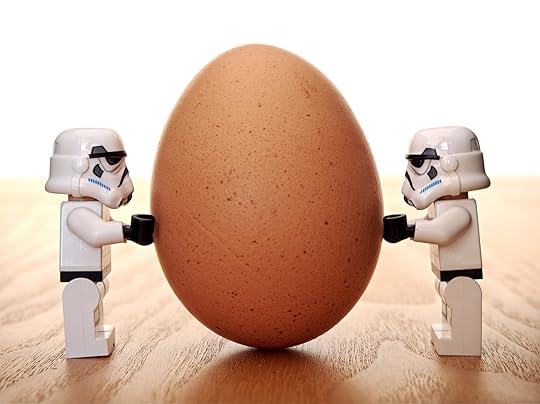Kern Carter's Blog, page 109
September 3, 2021
Reflecting on Writing in 2021
Push and Pull
Choose Me or Lose Me
Will I Move on from Writing to Helping Others?
There’s a way I could balance both options

Since I was nine, writing is something I always wanted to pursue. Jotting my ideas, thoughts, and emotions was always my escape from dealing with the harsh realities of the world. However, I didn’t want to shut myself away from people, so I looked into assisting others who need help in small but meaningful ways. Today I’m doing a mixture of both, and while both writing and helping others can be a challenge at times, I’m mostly happy to do both. But should I move on from being a professional writer, to use my writing skills in the helping fields?
When I decided to go after my passion in life, writing is what consumed me so much that I forgot about important things with my family in order to stay focused on my dream. I also came to the realization that writing constantly for someone else wasn’t making me as fulfilled as I thought it would. It was my dream after all and something I worked hard for, so why was I feeling so depressed and weary when it came to getting some writing done?
So I decided to cut back on professional article writing to focus on my family and the people who needed me at my day job. I’m a full-time caregiver/direct support professional, wife, and mom in which all take a lot of time, effort, and energy. On top of that, I’m also in college working on getting my Associate’s degree. With juggling multiple things in my life, it’s crucial for self-care, and I do that by journaling at the end of my day. Writing about my feelings helps relieve caregiver burnout and is what keeps me motivated to keep going both with writing and looking after others.
I’d like to become a social worker someday helping those with disabilities, the homeless, and working with nonprofit organizations. I’ve even thought about becoming a counselor to one day help those going through anxiety and depression. Caregiving for my twin sister who has autism, and caring for my husband’s grandmother who passed away last year was one of the most meaningful things that I’ve done, and while it was hard, it also helped me discover another reason why I’m here.
I excel in one on one careers and which allows me to use my writing skills in an impactful way. All the jobs that I’ve done I’ve used writing, and all the careers I wish to pursue will include writing in a confidential manner. Whether writing incident reports, daily logs, documents, progress reports, staff notes, etc, I can use writing to make a great difference in someone else’s life.
I’m still enjoying my hobbies and I write for myself without doing it as a full-time income. While I’ll always have a love-hate relationship with writing, I know I can use my gift to help, inspire, inform, and encourage others in the best way that I know-how. So will I move on from writing, not necessarily? I’ll still write, just for a different cause. Who knows, perhaps I’ll be a writing teacher, a researcher, a grant writer or maybe an editor one day. But if I’m still being a caregiver, social worker, or counselor, that’ll be okay with me too.

Will I Move on from Writing to Helping Others? was originally published in CRY Magazine on Medium, where people are continuing the conversation by highlighting and responding to this story.
September 2, 2021
I’m in a Long-Term Relationship With Writing
How do you act on violent impulses?
 Priscilla Du Preez for Unsplash.
Priscilla Du Preez for Unsplash.Not too long ago, I was having a conversation with someone that I used to regard as a dear, close friend. We had many things in common, but there were a few things we did not. One of those things was how we externalized violence. This person had a history of being violent with others (not a judgment, these were facts they had disclosed to me in the past). In contrast, I have an account of self-destructive behaviors, so all the violence I act upon is towards myself.
We concluded that perhaps there was a binary relationship between the two. That someone violent with others tends to explode, while someone violent with themselves tends to implode. It seems that this was what ended the relationship as we knew it for several years. I guess it is proof of the integrity of this insight.
I remember they asked me if I’d ever been violent with someone in the past since it seemed they could not comprehend how someone did not react as they did. At the time, I couldn’t remember any instances, but I did remember something a while later. I fought with the same girl in elementary school twice. I’m sure nobody would consider it a “real” fight after all. It probably lasted two minutes. I’m not sure if we even used our fists. We probably pulled each one’s hair, and that was it. It was still not okay. I don’t even remember her name, and we probably don’t even live in the same country, but I feel bad about it now.
Another seventh-grade girl wanted to fight with me, but I just avoided her until she got over it, I guess. We ended up hanging out years after. We were never close friends, but we respected each other.
I got a phone call the other night. It was a family member that had fought with their spouse. And by fight, I mean physically. I honestly don’t know why people disclose such things to me, other than probably the fact that I try hard not to judge and understand the motivations for their behavior. I hope I was able to help them by telling them how I handle conflict. I realize that I’m far from perfect and that my tendency to implode is very dangerous. I used to think what I did to myself didn’t affect others, but I realized I was wrong.
Talking about self-destructive acts, I tried to take my own life a little over a decade ago. It was a very dark time in my life. I was spiritually, emotionally, and physically bankrupt. I honestly thought people around me were better off without me. I didn’t realize how selfish that was at the moment, but now I can see it.
When I talked to my family member, this is what I said to them:
Every healthy adult is responsible for their own life. No one, absolutely no one else, can assume responsibility for others’ lives without getting involved in codependent behavior.The only things I have control of are my thoughts and my actions. I cannot control anyone else. I cannot control what my mother, father, partners, or future kids (if they come around) do or think.If I have any relationship and we only bring the worse in ourselves, it is a toxic relationship, and it needs to end ASAP.I had to work hard to avoid imploding like I used to do when I was younger. For me, I need to surrender daily to the fact that I am not anyone’s higher power, not even my own. I’m not a religious person, but I have been cultivating my spirituality long enough to recognize I have a chance of being a more helpful member of society when I live my life based on spiritual principles.
Again, I’m not saying I’m perfect. It’s been tough for me to understand that putting boundaries is caring about myself and the other person enough to realize the current situation is too toxic for sustainability in the long run. If I have any expectation of reigniting that relationship, I need to be right-sized. I cannot think I’m better or worse than anybody else. Because if I do, my ego will get in the way, which could look like morbid remorse or excessive pride. Those demeanors bring me farther away from the solution, and that’s how I try to get my will back.
Just for today, I try to live in the moment, do the next right thing, and help others to the best of my abilities.
To recapSome people externalize violence towards others (exploding), while others externalize violence towards themselves (imploding).Setting boundaries save relationships between ourselves and others.Codependency is never going to be healthy, even with the best intentions.Spirituality is the only thing that helped me become the person I wanted to be all along.
How do you act on violent impulses? was originally published in CRY Magazine on Medium, where people are continuing the conversation by highlighting and responding to this story.
September 1, 2021
blessed be
 Photo by БОРЯ via Redshot
Photo by БОРЯ via Redshoti tell her i am not whole
there are days when the
life in me seeps out
during sleep, sets itself
upon the mantle, and
tries not to die
she doesn’t understand
i tell her she’s lucky
she doesn’t have the chance
worry is the devil
it does not hide
it cannot camouflage itself
into something less likely
to kill
it just is
and if you allow it to
consume you more than
you allow life to
bless you
it will have won
without even trying
i have my armor
i fight worry at every turn
she wonders if i’m strong
enough to fight her
battles too and i say
without thinking,
“i’m done warring for
others. i’m just too tired.”
she hears me
i do bless her
give her snippets
from my past to guide
her to a future
she needs more than
the present we’re in
it is my benediction
i clasp my hands in prayer
blow a kiss in her
direction and wish her well
i always wish her well
sometimes this doesn’t matter
sometimes the waves
come harder and heavier
and the weight from them
pushes me into her with
rage
it is not by accident
everything has a reason
everything has a purpose
but i know i can only
offer what i have
i can’t muster up
anything else
not anymore
©2021 Tremaine L. Loadholt

blessed be was originally published in CRY Magazine on Medium, where people are continuing the conversation by highlighting and responding to this story.
Call for Poetry Submissions—What Does It Mean to Choose Yourself?
 Photo by Deandre on Unsplash
Photo by Deandre on UnsplashIn a journaling session this morning, I went through a few exercises that led me to a startling truth:
I strive to be the chosen one, but I don’t often choose myself.It seems contradictory to an ambitious person.
We all chase our dreams tenaciously, and most of us believe that sheer hard work will reap the rewards.
But what about the softer aspects of dream chasing?
Times, when you lift yourself up from failure and keep pushing forward despite rejection, is what builds resilience. Though, this often gets masked behind the theme of “sheer hard work.”
But what about the soft work?
I wrote today:
Many of us strive to be the chosen one,
Before choosing ourselves.
The give & take is out of balance,
Until we even out the scales.
But you don’t need a stage to validate your worth,
You just need to believe that you’re worth it first.
So, how do you know when you’re choosing yourself?
What actions or routines reinforce that self-love?
Is it tough to distinguish what you do for yourself versus what you do for validation?
Pour it all onto the page in this call for poetry submissions.
A few new rules:Keep your submission to ~ 350 words max.Format the poem as it is meant to be readMake sure to put the “poetry” tag on your storyFocus on clarity — make sure your piece has a clear premise and takeawayThe same rules still apply:You can submit to this or ANY of our past writing prompts. Just scroll through our previous newsletters. They’ll be marked “Call for Submissions.”If you’re already a writer for CRY, go ahead and submit.If you’re not a writer for CRY but would like to submit to this or any other prompt, let us know and we’ll add you ASAP. Include your profile handle in your message or comment.Be as creative as you want in your submissions. As long as you stick to the topic, we’ll consider it.Just because you submit doesn’t mean we’ll post. If you haven’t heard back from us in three days, consider that a pass.Please reach out if you have any questions at all. If you are new to Medium, here’s how you submit a draft to a publication.

Call for Poetry Submissions—What Does It Mean to Choose Yourself? was originally published in CRY Magazine on Medium, where people are continuing the conversation by highlighting and responding to this story.









